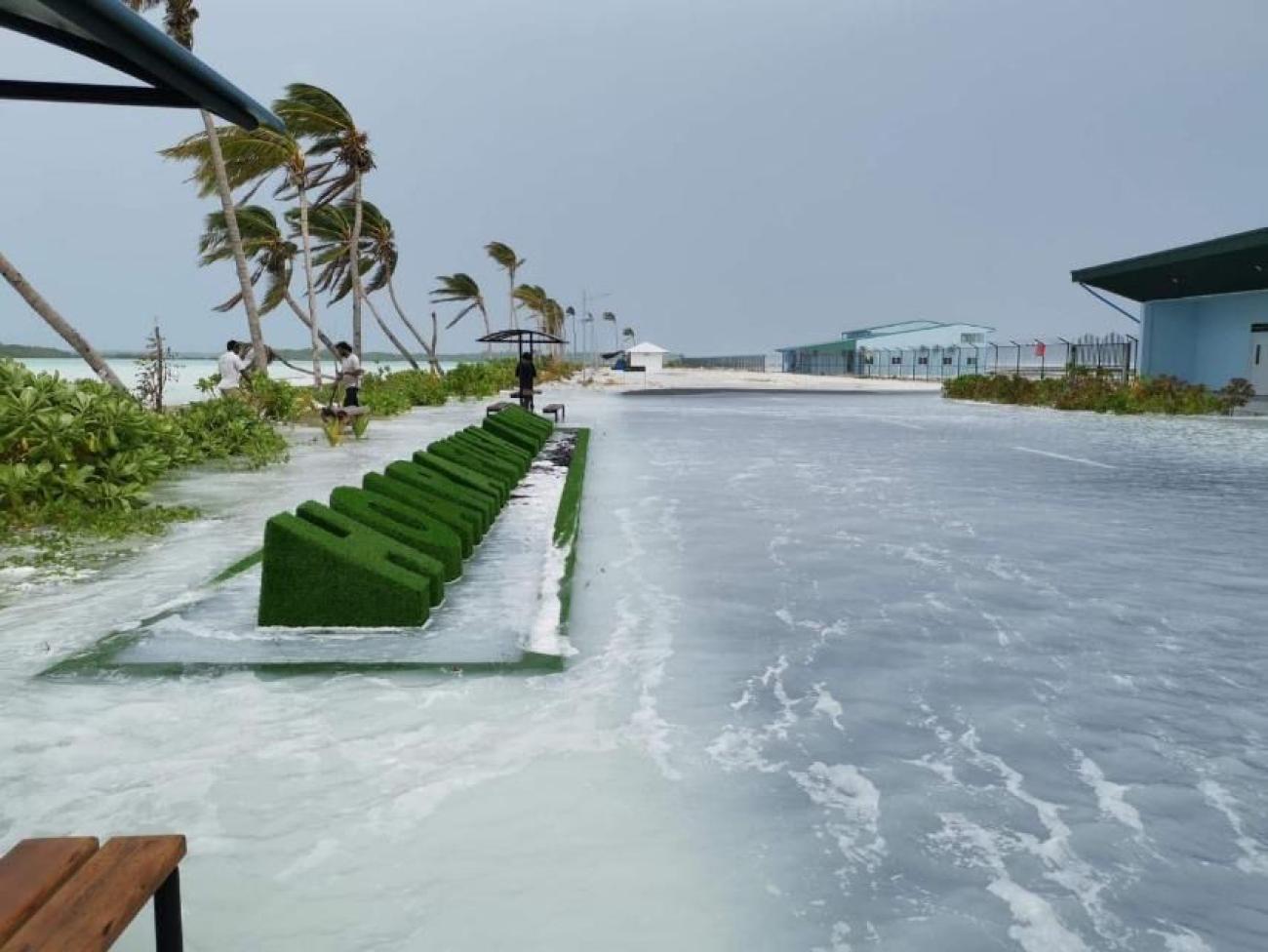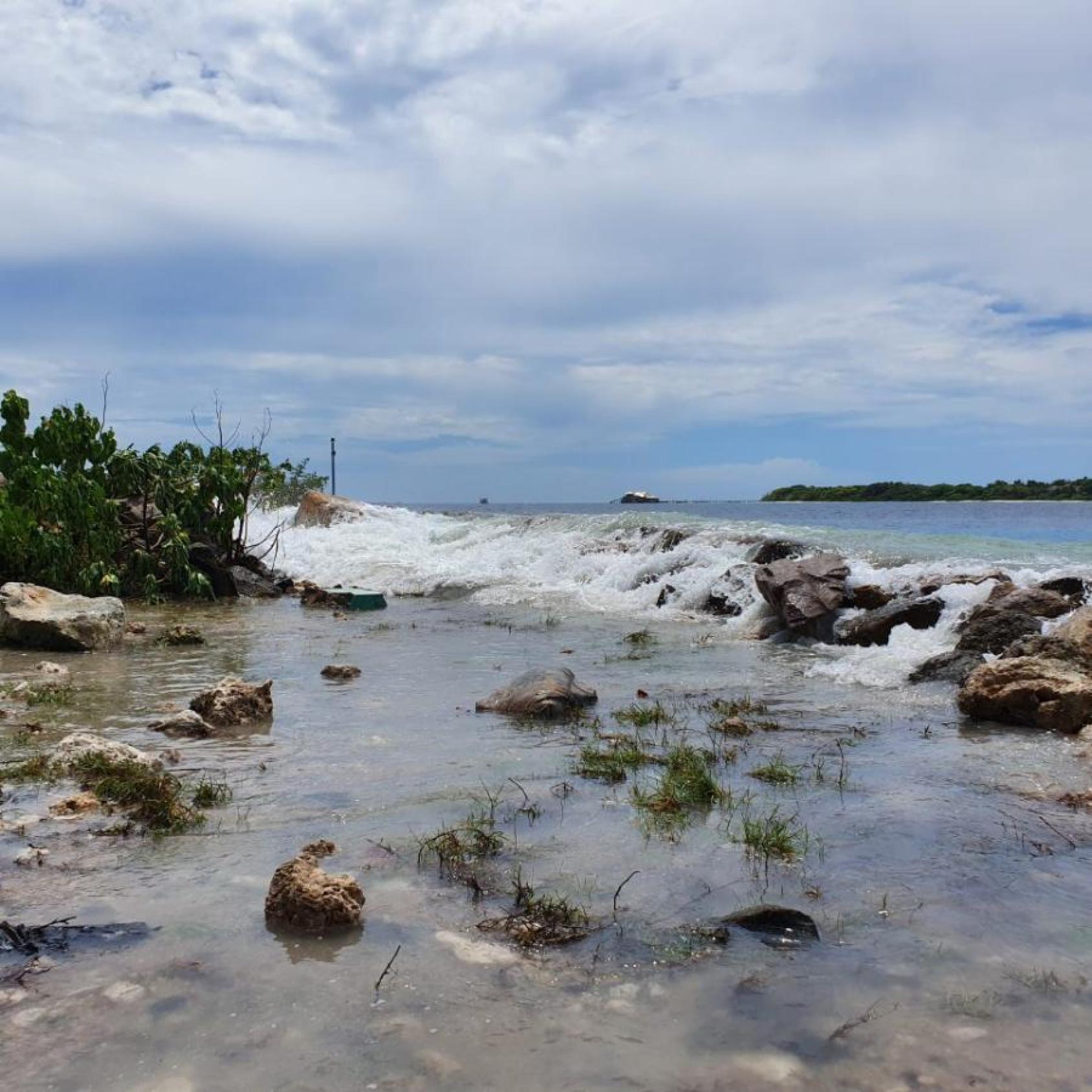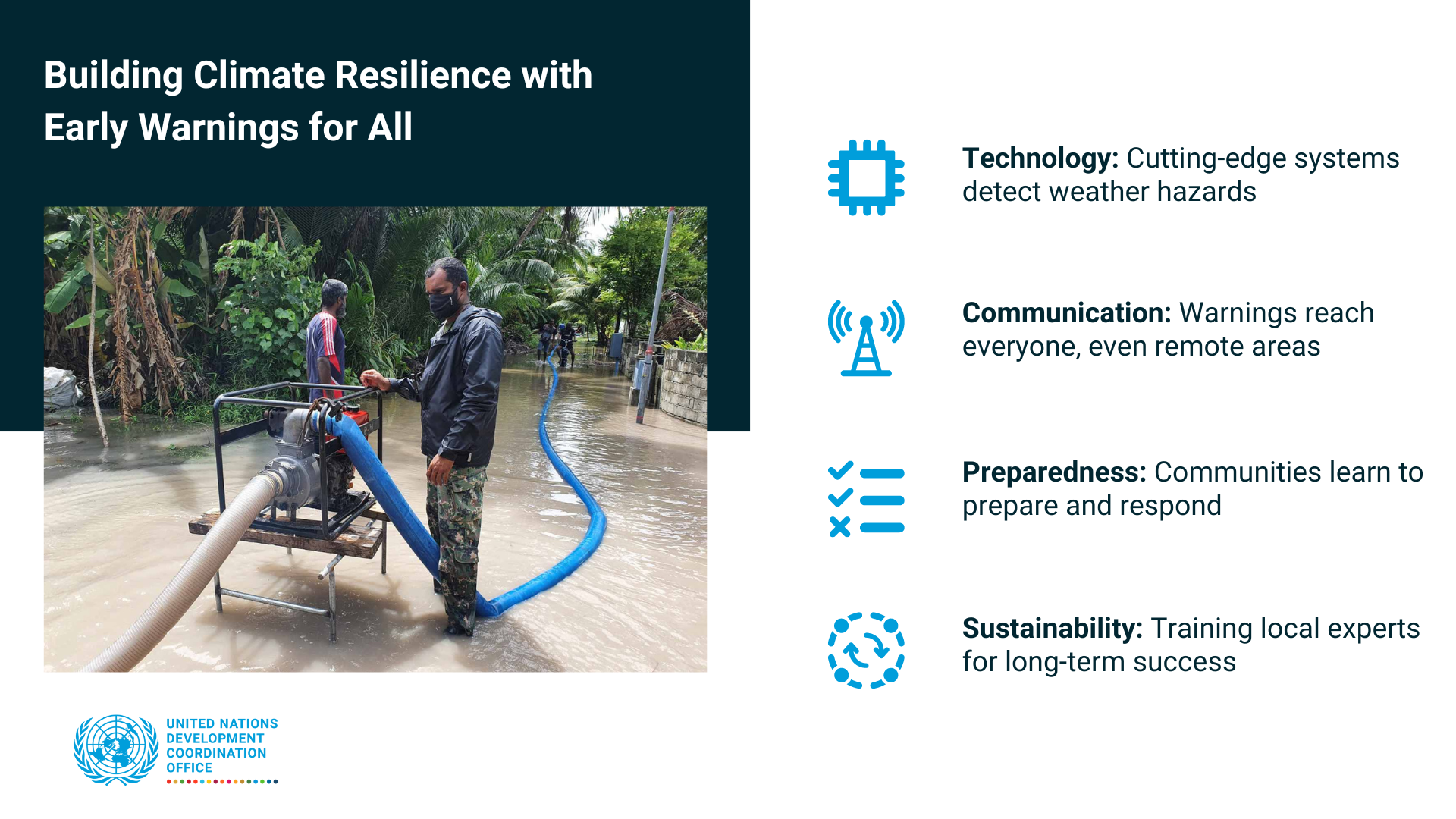Paradise Prepares: Maldives Pioneers Climate Resilience with Early Warning Systems

The turquoise waters of the Maldives paint a picture of paradise, but beneath the idyllic surface lies a stark reality. This low-lying island nation comprising an estimated 1,192 islands spread across 90,000 square kilometers in the Indian Ocean, faces an existential crisis fuelled by climate change. With 75 per cent of its land barely a meter above sea level, even a minor rise in sea level poses a grave threat.
Climate change’s wrath doesn’t stop at rising sea levels. It amplifies the intensity and frequency of storms, wreaking havoc on the Maldivian economy. Tourism, the lifeblood of the nation, suffers as extreme weather disrupts travel and damages infrastructure. Fisheries, another crucial source of income, are impacted by changing ocean currents and warming waters. This ripple effect translates into unemployment, reduced livelihood options, and a bleak future for local communities.
In 2023, the UN Secretary-General announced Early Warnings for All (EW4All), a groundbreaking initiative to ensure that everyone on earth is protected from hazardous weather, water, or climate events through life-saving early warning systems. The Maldives, demonstrating its commitment to climate resilience, became the first country in Asia and the first Small Island Developing State (SIDS) to embrace this vital initiative.

RCO Spearheads Collaborative Action
Recognizing the country's unique needs and the fragmented nature of early warning systems, the UN Resident Coordinator’s Office (RCO) championed a collaborative approach, engaging UN entities and development partners, local and national government officials, non-governmental organizations and regional technical experts to define a shared vision and strategy for the EW4All initiative.
Convening a national consultation on Early Warnings for All, the UN in Maldives and the Government brought together experts from the National Disaster Management Authority, the Maldives Meteorological Service, the National Centre for Information Technology, and the Maldives Red Crescent paving the way for the establishment of a strategic team co-led by the Ministry of Environment, Climate Change and Technology. This initial consultation served as a catalyst for collaboration, identifying priorities, and establishing a unified approach to strengthening early warning systems across the Maldives.
Following the consultation, the Government of Maldives, with the convening leadership of the RCO assembled a task force advised by leading experts from across the region. The task force represented the four critical areas of the EW4All Action Plan: the UN Office for Disaster Risk Reduction (UNDRR), the World Meteorological Organization (WMO), the International Telecommunication Union (ITU), and the International Federation of Red Cross and Red Crescent Societies (IFRC). The task force builds on decades of efforts in the area of disaster risk reduction and management by the United Nations Development Programme (UNDP) and UNDRR, with additional expertise provided by the Economic and Social Commission for Asia and the Pacific (UNESCAP), the UN Environment Programme (UNEP) and Group on Earth Observations (GEO).
The EW4All initiative is driving investments in cutting-edge early warning systems and leveraging advanced technologies to pinpoint weather hazards. The Maldives is transforming insights from experts into tangible action to safeguard its future, giving communities precious time to prepare and reliable communication channels to ensure lifesaving warnings reach everyone, even in remote areas. Educational programmes will empower individuals to understand climate risks and make informed decisions. By training local experts, the Maldives will be building a resilient workforce capable of maintaining these systems for the long term. This comprehensive approach ensures that these advancements translate into better preparedness, reduced risk, and stronger, safer communities across the islands.

Securing a Resilient Future
Seeing the need for a lasting positive impact, the RCO rallied political support for the initiative. They achieved this by energizing the task force to create a custom strategy that specifically considered the Maldives' unique vulnerabilities to climate change and natural disasters. As a result, a final EW4All roadmap was approved at the presidential level. This means that the EW4All road map will be applied by the Government of Maldives nationally and locally to coordinate and mobilize resources for all interventions that would contribute to early warning systems. Maldives is the first country among the 30 focus countries of the EW4All initiative to develop and endorse a national EW4All road map, at the presidential level, to ensure multi-hazard early warnings for all by 2027.
This initiative demonstrates the RCO's strength in bringing various actors together. Facilitating open dialogue and collaboration between diverse groups, the UN is helping bridge the gap between global and local knowledge and needs, offering solutions that propel Middle-Income Countries like the Maldives towards a sustainable and resilient future.
For more information about the UN's work in Maldives, visit maldives.un.org













